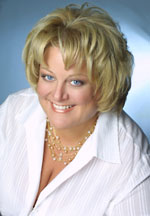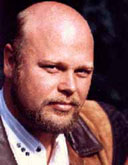Heralding
"a new generation of Wagnerians," Vienna State Opera director Ioan Holender
announced highly-anticipated plans for a new production of Der Ring des Nibelungen at a press conference in the opera house's tea salon yesterday (13 October).
The individual components of the tetralogy will be introduced over a two-year period beginning in 2007, culminating in three complete Rings in May and June 2009. For the first time in many years, the cycles will be given over six-day periods, opposed to the four weeks which have become the company's custom.
Franz Welser-Möst will conduct, taking time away from his commitments as music director of the Cleveland Orchestra and the Zurich Opera House to prepare the orchestra and cast, many of whom are new to their roles.
 Still basking in the bravos for her role debut as Isolde with the company, Deborah Voigt will take on for the first time the role of Brünnhilde in Siegfried and Götterdämmerung. The Walküre Brünnhilde will be Eva Johansson, who sang Sieglinde at the 2004 Bayreuth Festival.
Still basking in the bravos for her role debut as Isolde with the company, Deborah Voigt will take on for the first time the role of Brünnhilde in Siegfried and Götterdämmerung. The Walküre Brünnhilde will be Eva Johansson, who sang Sieglinde at the 2004 Bayreuth Festival.
The young Finnish bass-baritone Juha Uusitalo will portray Wotan/the Wanderer.
Siegfried will be American Heldentenor Stephen Gould, who recently scored triumphs as Parsifal in Graz and Tannhäuser in Bayreuth. Gould is also to sing Siegfried in a new Ring at Bayreuth slated for the summer of 2006.
Ubiquitous State Opera tenor Johan Botha will sing the role of Siegmund in Die Walküre; his sister/lover Sieglinde will be Nina Stemme, who recently made her house debut as Senta in Der fliegende Holländer and who will sing Isolde at Bayreuth in 2005.
 A surprise came with the announcement of Heldentenor Wolfgang Schmidt's casting as Mime in Siegfried,
a part usually assigned to a character tenor. Schmidt sang the role of Siegfried
with the State Opera when the current production of Götterdämmerung was unveiled in 1993, and has been a Bayreuth Siegfried for the past several seasons.
A surprise came with the announcement of Heldentenor Wolfgang Schmidt's casting as Mime in Siegfried,
a part usually assigned to a character tenor. Schmidt sang the role of Siegfried
with the State Opera when the current production of Götterdämmerung was unveiled in 1993, and has been a Bayreuth Siegfried for the past several seasons.
Another Bayreuth veteran, Japanese mezzo-soprano Mihoko Fujimura, will sing Waltraute in Götterdämmerung, a production which also features American bass Eric Halfvarson as Hagen.
Michaela Schuster, who won accolades for her Kundry in the Graz Parsifal and her Brangäne in Stuttgart's new Tristan und Isolde, will be Fricka. Swedish contralto Anna Larsson will sing Erda, a role she seems to own at many of the world's major houses.
The Ring will be directed by former actor Sven-Eric Bechtolf, a newcomer with only five opera productions on his résumé, most of them with Welser-Möst in Zurich. The sets and costumes will be designed by Rolf and Marianne Glittenberg, Bechtolf's frequent collaborators.
Die Walküre will premiere on 2 December 2007; Siegfried bows on 27 April 2008; Götterdämmerung dawns on 8 December 2008; a single performance of Das Rheingold will be given on 2 May 2009 before the first complete cycle is launched three days later.
The State Opera's current Ring, a minimalist production by Adolf Dresen which saw all four operas premiered in the 1992–93 season, has been the subject of harsh criticism from public and press for many seasons. In a city where two annual Rings are de rigueur, rumors and speculations had been running rampant for several seasons as to who would be tapped to direct a new production. Informed sources have stated that renowned Regieoper practitioners Peter Konwitschny and Martin Kusej both declined invitations from Holender to stage a new Ring at Vienna's "House on the Ring."
Dresen's staging, set to return to the repertory on 24 October with Peter
Schneider conducting, will continue to be shown through 2006.





